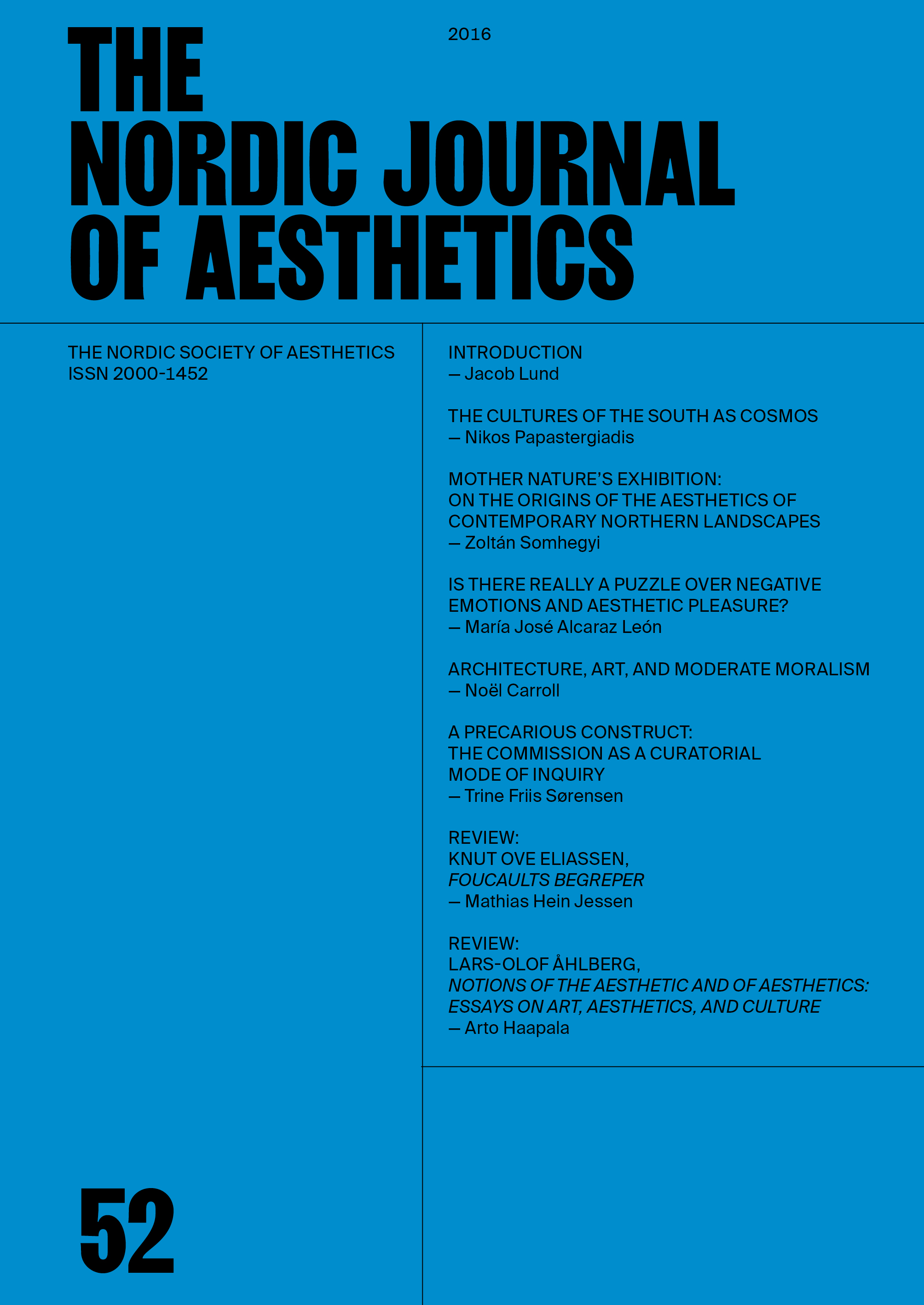Is There Really A Puzzle Over Negative Emotions And Aesthetic Pleasure?
DOI:
https://doi.org/10.7146/nja.v25i52.25617Keywords:
Negative emotions, Aesthetic pleasure, Aesthetic value, ParadoxAbstract
Two seemingly contradictory aspects have marked art’s appreciation – and aesthetic appreciation in general. While an experience of pleasure seems to ground judgments of aesthetic value, some artworks seem to gain our praise by the very negative – unpleasant – experience they provoke. Known as the paradox of negative emotions, aestheticians have, at least since Aristotle, tried to deal with these cases and offer different explanations of the phenomenon. In this article, María José Alcaraz León does not directly offer an alternative explanation; rather she focuses on the apparent tension between an understanding of aesthetic experience in terms of a certain kind of pleasure and the negative aspect that is necessarily involved in our appreciation of painful art. The purpose of her article is to show that cases of artistic appreciation that involve negative emotions do not need to give up on the idea that aesthetic value is ultimately grounded upon an experience of pleasure.
Downloads
Published
How to Cite
Issue
Section
License
Authors who publish with this journal agree to the following terms:
- Authors retain copyright and grant the journal right of first publication with the work simultaneously licensed under a Creative Commons Attribution License that allows others to share the work with an acknowledgement of the work's authorship and initial publication in this journal.
- Authors are able to enter into separate, additional contractual arrangements for the non-exclusive distribution of the journal's published version of the work (e.g., post it to an institutional repository or publish it in a book), with an acknowledgement of its initial publication in this journal.
- Authors are permitted and encouraged to post their work online (e.g., in institutional repositories or on their website) prior to and during the submission process, as it can lead to productive exchanges, as well as earlier and greater citation of published work (See The Effect of Open Access).




